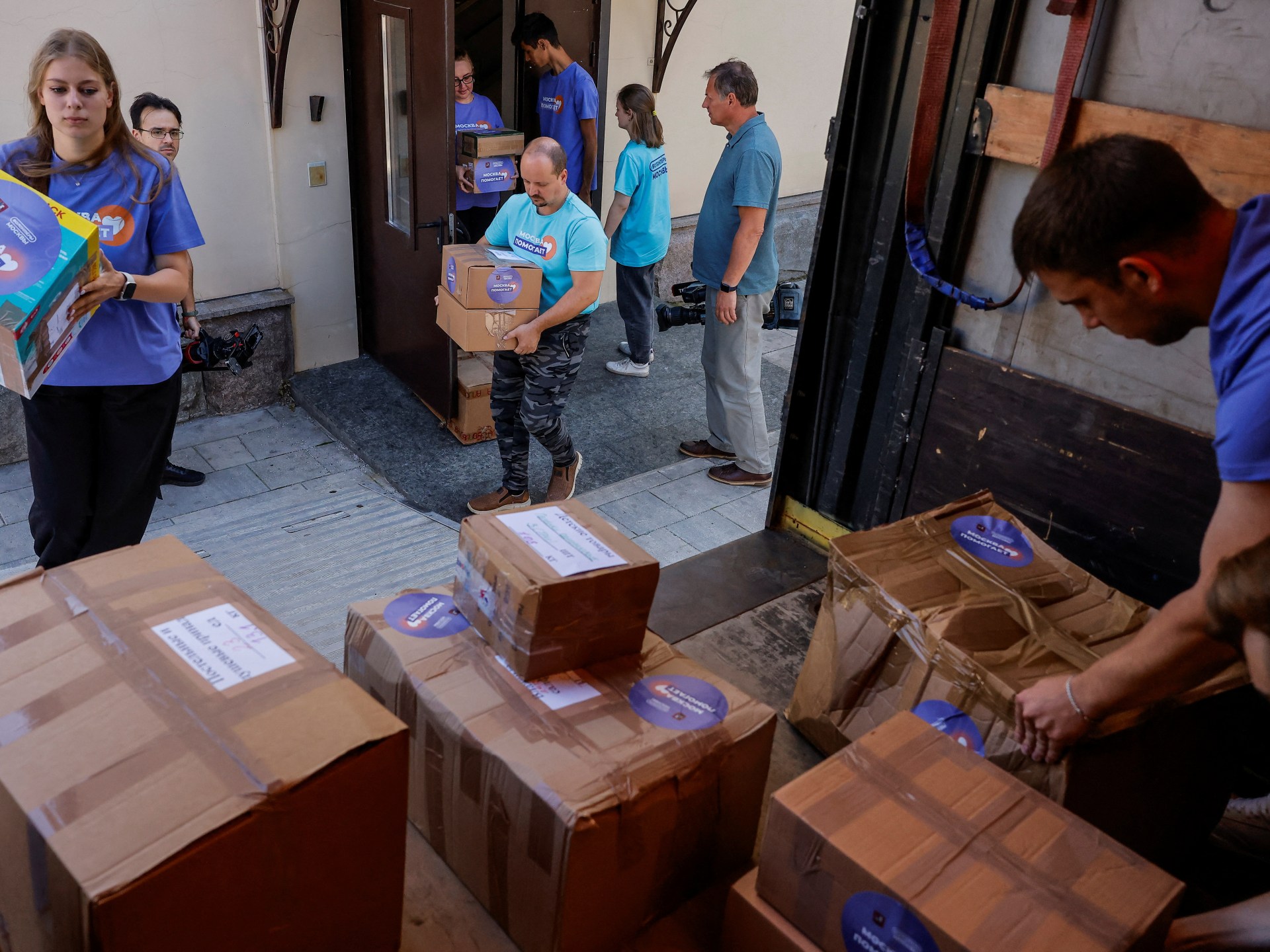In Russia, solidarity and apathy as war with Ukraine escalates | Russia-Ukraine war News
Volunteers rally for people displaced by Ukraine’s incursion, but in Moscow, some brush off Kyiv’s drone assault.
On Wednesday, Russia’s air defence shot down 11 drones in and around Moscow in what was described as one of the “largest ever” such attacks by the city’s mayor, as Ukraine continues to strike within Russian territory proper.
Further south towards the Ukrainian border, Kyiv’s troops continue their advance through the Kursk region while rocket fire and artillery continue hitting the city of Belgorod, resulting in dozens of civilian casualties.
The spillover of war in the border regions has struck a cord. State-back media channels have urged unity.
Some have even drawn parallels with the second world war when Kursk was a major battleground between Soviet and Nazi tanks.
“Kursk, all of Russia is with you,” read a banner lighting up the Rostov Arena stadium in Rostov-on-Don, earlier in August.
“Kursk, Krasnodar is with you,” read a message inscribed in burning candles on the main square of the eponymous city.
There have been many aid initiatives for conflict-racked regions and the thousands of Russians who have been displaced by the fighting.
Volunteers have been gathering aid for internal refugees in major cities such as Saint Petersburg. Donations are then driven by van to shelters and evacuation points in the Kursk region.
The shelling of Belgorod has not been forgotten, either.
“It’s impossible to break the people of Belgorod,” Margarita Lisnichaya, a political scientist, Belgorod native and member of the Digoria Expert Club think tank, told Al Jazeera.
“The townspeople stoically withstand the enemy’s blows and continue to stay in their homes. People know: they are at home and all of Russia supports them.”
Ukrainian drones have been striking Moscow throughout the conflict, even going so far as hitting the Kremlin itself last year, an act which officials described as a “terrorist attack”.
However, since then, the novelty has seemingly worn off and the drones, which rarely hurt Muscovites themselves, cause much less alarm.
All interviewees requested Al Jazeera withhold their last names.
“In my circle, they’ve barely said anything [about Wednesday’s incident],” said David, a Moscow resident in his late thirties who works in academia.
“From what I can see – only wry humour. They just sit in their offices, smirking to themselves: ‘Ah, it’s just another regular delivery’, ‘Nothing interesting has arrived for us yet’.”
“I don’t know, everyone was asleep when it happened,” added David’s friend Dima. “No one even reads the news about this any more.”
“The last time UAVs caught us by surprise was last year,” Dima said, referring to the drone attack on the Kremlin.
“Someone is probably nervous, as always,” said 40-year-old Luna, a milliner.
“In my circle, this was not discussed, especially since they didn’t even seem to have landed. Personally, I’m not nervous. It either hits us or it doesn’t, there’s no point in worrying. But I do live next to a hydroelectric power station, so perhaps there are reasons to worry.”
As part of Kyiv’s offensive and in an attempt to complicate Russia’s war effort, Ukrainian drones have repeatedly hit targets such as oil refineries and other infrastructure.
in-russia-solidarity-and-apathy-as-war-with-ukraine-escalates-russia-ukraine-war-news
#Russia #solidarity #apathy #war #Ukraine #escalates #RussiaUkraine #war #News

